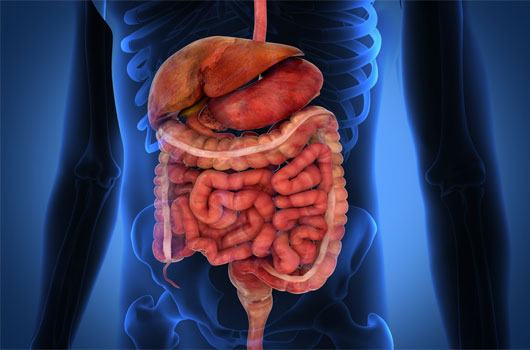
There are some things that are generally unpleasant to talk about: politics, religion, money, and pretty much anything having to do with your bowel movements—including a colon cleanse. Add those topics to the growing list entitled “what not to discuss at your next dinner party.” And while you might not really want to talk about your bathroom routine and what is happening in your gut and colon, it is important to be educated about your digestive health. As Fitness reports, according to Rebekah Gross, MD, a clinical gastroenterologist at NYU Langone Medical Center, “the brain influences the digestive tract and vice versa.” In other words, how your insides feel definitely can affect your mood. So no, it’s not all in your head that you’re in a really bad mood when your digestive system is out of whack. Steven Lamm, MD, the author of No Guts, No Glory, continues to say “the gut is a critical group of organs that we need to start paying more attention to…doing so may be the secret to improving our overall wellness.”
Read Related: Are Colonics Bad for You?

So shake off the awkwardness that usually settles in when someone brings up poop, gas, colon health, irritable bowel syndrome and any other digestive topics. Put on your mature hat in the name of digestive well-being and overall health, because today we’re going to break down the difference between enemas and colonics.
You’ve probably heard about them, but you don’t really know what they are all about (maybe you don’t want to) and you probably don’t know the difference. These words are often used interchangeably, but they are different procedures, both with potential benefits and risks.
When it comes to a colon cleanse, let’s start with an enema, which is “a procedure in which liquids are inserted directly into the rectum. Enemas are primarily used to empty the large intestine of its contents. When liquid is introduced directly into the large intestine, the effects include feelings of urgency, a rapid increase in colonic contractions and a rapid emptying of the colon of fecal matter,” according to Irritable Bowel Syndrome (IBS) expert Dr. Barbara Bolen.

A colonic is a similar procedure; alternative medicine expert Cathy Wong, ND, explains “a colonic is the infusion of water into the rectum by a colon therapist to cleanse and flush out the colon. It is also called colonic hydrotherapy or colon irrigation.” The key differences are that a colonic is meant to cleanse the entire length of the colon, and it involves multiple infusions of fluid into the colon, not just one (as with an enema). Beyond the basic enema, coffee enemas have been getting a lot of attention in recent years, which is basically an enema using a coffee solution that is meant to cleanse the colon, stimulate the liver and release toxins.
You might be thinking that both options sound unpleasant, and we’d have to agree with you. So why do people choose to participate in these procedures? Well for starters, they can help ease digestive discomfort and intestinal stress from issues such as constipation or Irritable Bowel Syndrome. They are also thought to improve overall health, mood and energy levels by relieving bloating, cramping and other digestive complications. Lastly, colonics and enemas (both ways of cleansing the colon) are promoted as a way to cleanse the body and lose weight. And because enemas and colonics can be herbal or contain natural ingredients, rather than prescription medications, people often don’t think there are risks involved.

So, should you be using enemas or colon cleansing as a way to achieve maximum digestive health? This debate has been going on for decades, and the bottom line is this: as with most medical or alternative health procedures, there are potential benefits and potential risks, and different opinions from medical experts.
As Shape tells it, Dr. Roshini Rajapaksa MD, gastroenterologist at NYU Langone Medical Center, argues “colonics are neither necessary nor beneficial, as our bodies do a great job of detoxifying and eliminating waste on their own.” On the other side of the argument, colonic guru Tracy Piper, founder of The Piper Center for Internal Wellness, says that her clients (who include many Hollywood celebs) “have figured out that cleansing the body in this way enables them to perform better, reduces stress, improves attitude, skin, and endurance, allows them to age seamlessly, and of course, look AMAZING on the red carpet.”
The jury is still out on whether or not you should be making colonic therapies a part of your regular health routine, so in the meantime, if you’re interested in learning more speak to a medical professional or accredited therapist to find out if either of these procedures is right for you.











